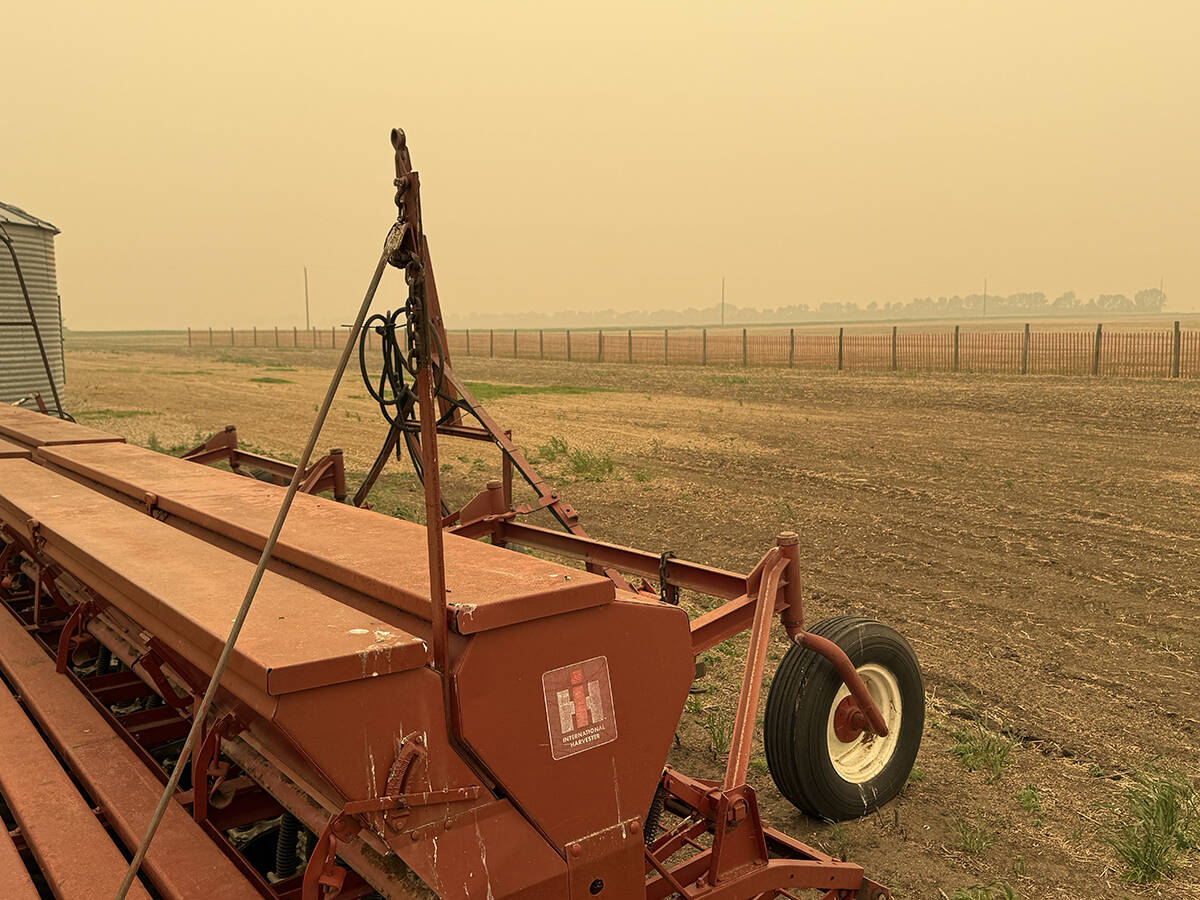People are increasingly worried about the health of their food at a time when Canadian Food Inspection Agency inspectors are overwhelmed with heavy workloads.
Bob Kingston, president of the Public Service Alliance of Canada’s agriculture alliance, cited the case in Toronto where inspectors make the rounds between several large plants spread across the megacity each week.
“The larger the factory, the harder it is to control the quality of what comes out the door,” said Kingston, whose union represents the CFIA inspectors. “The sheer volume makes it impossible to keep on top of food safety issues.”
Read Also

Wildfires have unexpected upside this year
One farmer feels smoke from nearby wildfires shrouded the July skies and protected his crop from the sun’s burning rays, resulting in more seeds per pod and more pods per plant.
Kingston was a participant in a National Farmers Union workshop on agriculture quality and food safety Nov. 20 in Saskatoon. He said the federal government has misled the public with reports of more inspectors on the job than is the case.
Kingston said these workers have an important role to play in protecting the food supply and their numbers need to be maintained by government to achieve high standards of food inspection.
“They should be advocating not undermining food safety,” he said.
Kingston was opposed to corporations lobbying government to allow processing plants to self-regulate, noting the same could come to slaughter plants in the near future.
He expects the reintroduction of Conservative food safety legislation would again cater to large plants.
“It serves you well if you are a food factory but not if you’re a producer or a small organization.”
To counter these trends, Kingston suggested groups like the NFU band together with a common message and that individuals hold their local politicians accountable.
The NFU passed a resolution calling for an investigation of changes and cutbacks made to the CFIA last April. It asked for the reinstatement of the original number of plant paid government inspectors at meat packing and processing plants and called for testing and inspection services to be carried out by qualified CFIA inspectors.
Duncan, B.C., mixed farmer Bill Code said most producers regard CFIA inspectors as the enemy, but he developed a new understanding of their work following Kingston’s comments.
“We should be working with them,” Code said. “They’ve become the whipping boys and it serves our politicians well to use them as such, as it diffuses it off them.”
He said such tactics allow government to be influenced by powerful corporate interests.
“We need to take charge of the health of our local food safety, as it isn’t going to be handled by CFIA; government is moving them out of it,” he said.
Citing high rates of overweight children and potentially shortened life spans, Code said the next generation’s health might be the catalyst to bring about change.
With climate change, fluctuating fuel prices and the use of non-renewable fuels, he believes the best path is local food production systems. One farmer should be able to slaughter animals or process food and sell it to his neighbour, something not allowed under today’s regulations.
“They’ve done it in the name of food safety but have eliminated local common sense component,” he said.
During the convention, NFU members re-elected president Stewart Wells, vice-president Terry Boehm, women’s president Colleen Ross and youth president Nigel Smith. Joining the board is women’s vice-president Joan Braidy.














